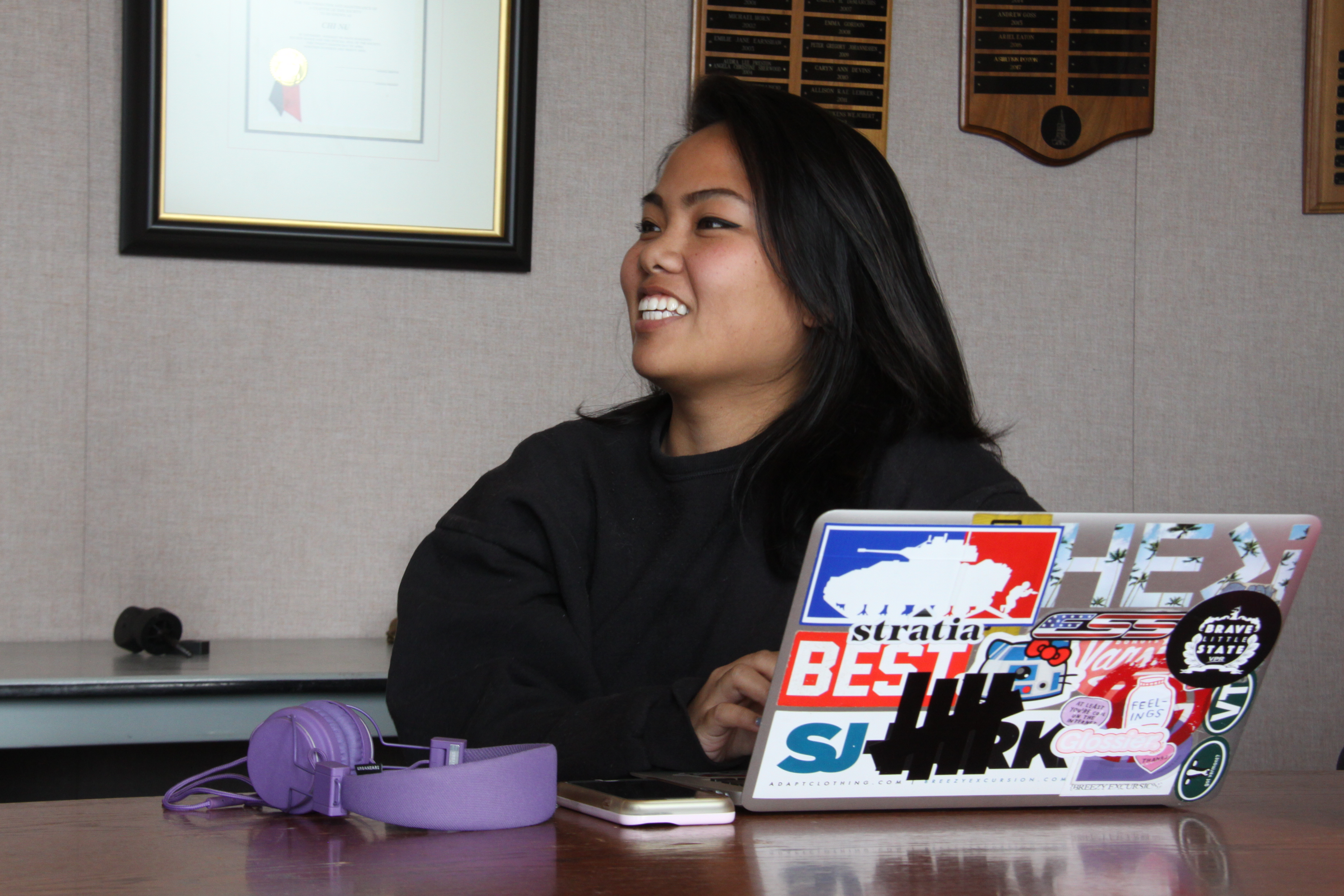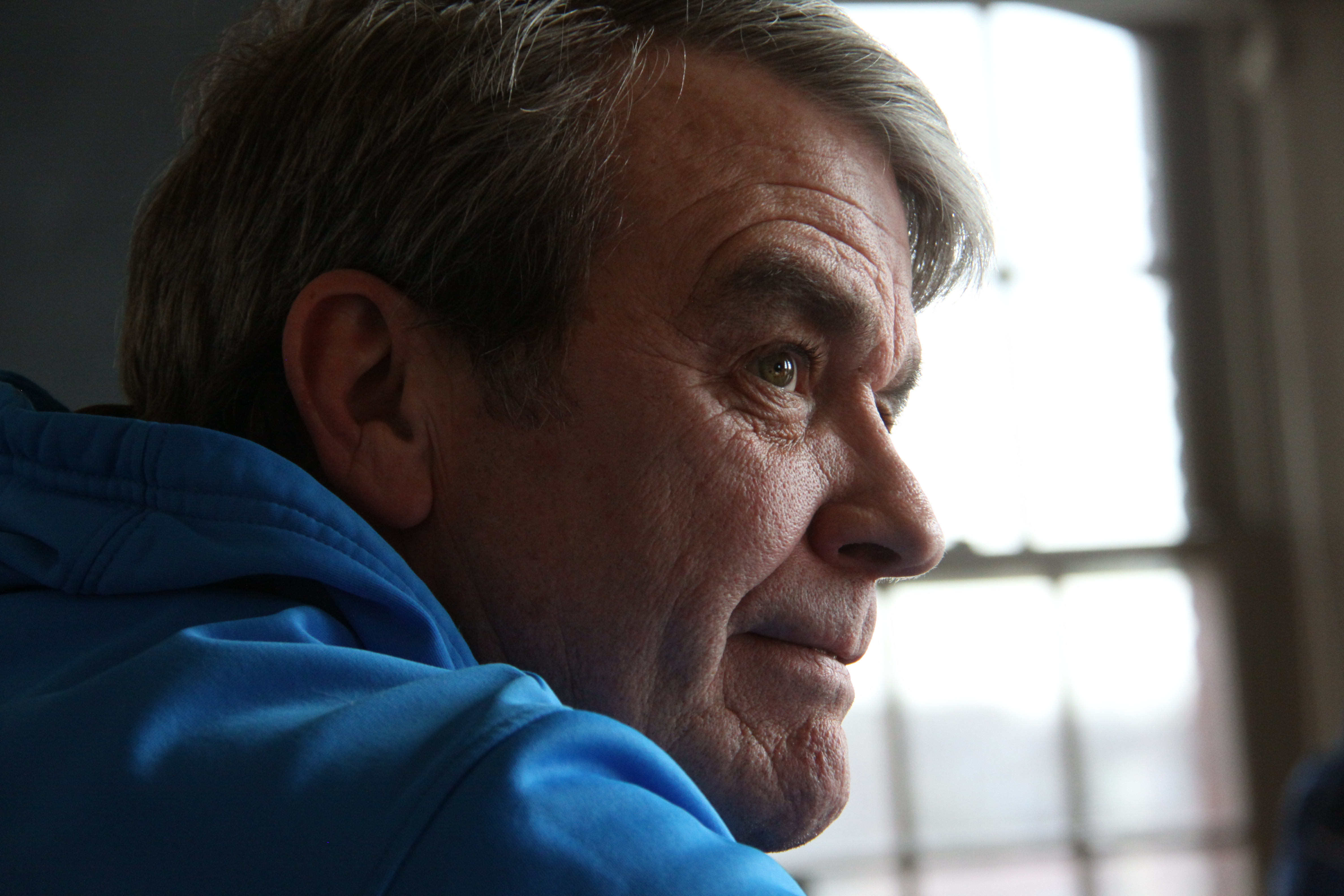
University of Vermont student Stephanie Wobby served as an Army medic in Iraq and Afghanistan. (Kirk Carpaezza/WGBH News)
By 2020, more than five million post-9/11 military members are expected to transition to civilian life. Many will go back to college, hoping to earn a degree as adult learners. Today, only 4 percent of undergraduates in this country are veterans. To engage them, Vermont's flagship campus is turning to an unlikely, ancient Greek source: Homer.
Inside a seminar room at the University of Vermont in Burlington, six students - all veterans - slowly page through the epic poem the Iliad, reading Homer's gory account of the final weeks of the Trojan War.
After reading a few passages, they discuss some of the poem's primary themes: coming home and honoring the dead.
This classics course is limited to veterans. There are no papers. No tests. Just one requirement: participation.
UVM is the only school in the country to offer such a course for credit.
Stephanie Wobby served as an Army medic in Iraq and Afghanistan. The 27-year-old from Sacramento, Calif. said the 2,800-year-old poem gives new meaning to her experience.
"I remember reading it when I was in high school, and it didn't really mean anything to me other than an assignment,” Wobby said after class. “But now it's like, ‘Okay, the Iliad. They went to war, and this is how they perished. This is what they did for their comrades.’ And it's more relevant to me now than it was before."
Wobby said she enrolled in the course to find classmates with similar backgrounds.
"I'm not surrounded by, like 18- 19-year-olds, who are still trying to figure out what they are doing,” Wobby said. “There was a sense of community, and it was kind of like group therapy without the stigma attached to it."
While most colleges cater to students right out of high school, many struggle to engage adult students, including veterans. At UVM, reading Homer together seems to help them feel more at home on campus.
John Franklin, the classics professor who teaches the class and another on the Odyssey in the fall, said veterans see themselves in Homer's Greek hero, Odysseus.
“He wanders at sea for ten years. He's lost. He goes through a number of adventures that can be interpreted allegorically as veterans' experiences,” Franklin said. “The Land of the Lotus Eaters. People connect that with substance dependency for medicating for physical pain, emotional pain."
A Dartmouth classics professor, Roberta Stewart, developed the curriculum known as "Homer for Veterans," ten years ago.
"It was a light bulb moment,” Stewart said. “I watched a soldier who was a very fine writer start to have troubles, and I said, 'Read Homer. Homer knows.'"
Web Extra: Roberta Stewart Interview
Stewart tested out her theory with a book groups for veterans at the VA in White River Junction, Vt. and then Lowell. She hopes other colleges will adopt her novel curriculum.
“We turn people into readers,” Stewart said. “It's not my wisdom. It's Homer's wisdom."
UVM student veteran Keith Roy, 50, said he signed up for this class for the camaraderie with other veterans. He recently retired after 34 years flying Army helicopters.
"It's easier hanging out with a couple of veterans who have something very similar with you,” Roy said. “We talk about the Illiad and we also relate it to our previous lives and some of our experiences in the military. It's therapeutic, I think."

Keith Roy flew helicopters in the Army for 34 years. (Kirk Carapezza, WGBH News)
WGBH News' Esteban Bustillos contributed to this story.










